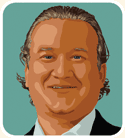El Salvador was the last stop in what probably seemed an eternal five days to President Obama. Amid increasing domestic pressure regarding the intervention in Libya, Obama had to reduce an already short stay (although just by a few hours) in San Salvador.
President Funes, hoping the U.S. President would stay longer, jokingly said: “It is a pity because if you had stayed a little bit longer we could have invited you to get to see the beaches of our country that are one of the best in the region.”
The coincidence of Obama’s trip and the Libyan intervention unfortunately downplayed the importance of what could have been an even more historic visit. Before the trip, analysts, scholars and civil society engaged in Latin American issues speculated as to whether Obama’s trip represented a new realignment of U.S.-Latin American relations. The accuracy of that hypothesis is yet to be tested.
With Libya dominating the news, the media lost an opportunity to question President Obama on critical issues such as immigration reform, growing support for legalization of the commercialization of drugs in some Latin American political circles, democracy promotion, and crime. In not addressing these important policy questions—sidelined by inquiries on Libya—some skeptics questioned whether we’re even relevant.
In the joint press conference on Tuesday made by Presidents Obama and Funes, three of the five questions asked were regarding Libya. Funes, in what seems a desperate plea to refocus attention, remarked: “I just want to go back to the matter of El Salvador and the remarks made regarding the importance of these announcements made by President Obama with regards to projects…” No other questions were asked.
Putting aside the global context, the most significant point made by President Obama while in El Salvador was recognizing the importance of institutions and the need for constant reform. “Institutional reforms may end up being more important—or, at least, they have to go hand in hand, because what a country like El Salvador does not want is perpetually to be looking to the outside for its own development,” said President Obama. “Ultimately it wants to be able to find growth and tap into its own potential here inside the country.”
These words give a tremendous responsibility to President Funes, political stakeholders and civil society. El Salvador needs to make substantial and rapid strides in reforming political, judicial and electoral institutions. Furthermore, the message is El Salvador better start looking for resources from within to make these reforms a reality (one can arrive at this conclusion by dividing the $200 million pledged for crime and security in the six Central American countries from Guatemala to Panama). This puts the pressure on Funes to reengage on the matter of a fiscal pact.
To the ever enthusiastic, the trip was a tremendous success making Funes gain yet additional popularity and making him an unquestionable interlocutor and ally for the U.S. in Central America. To the more skeptical the true outcomes of the official visit are yet to be seen. For the ordinary Salvadoran, Obama will me missed. During the 24 hours he was here, the massive deployment of security forces gave the city a temporary sense of citizen security.
*Julio Rank Wright is contributing blogger to AQ Online. He is from San Salvador, El Salvador, but temporarily living in Washington DC.





